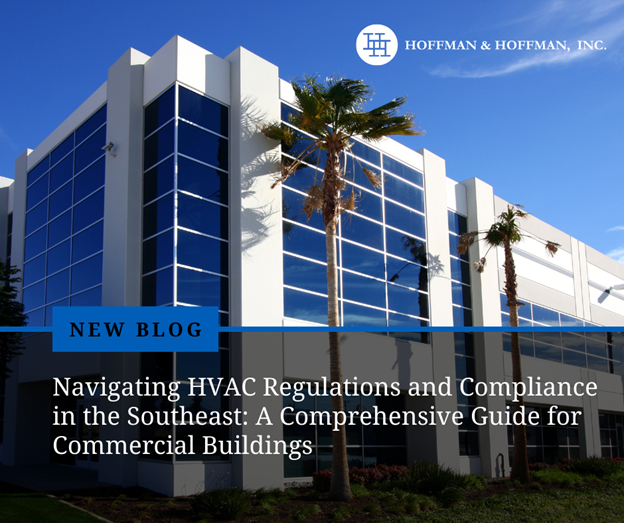Navigating HVAC Regulations and Compliance in the Southeast: A Comprehensive Guide for Commercial Buildings

Commercial HVAC regulations play an important role in ensuring efficiency, safety, and environmental responsibility. The Southeast region presents particular challenges and requirements because of its climate and specific regulations. This comprehensive guide will cover key HVAC regulations and compliance considerations for commercial building owners and facility managers in the Southeast.
- Regional HVAC regulations: The Southeast region encompasses multiple states, each with its own set of HVAC regulations. It is important to know each state's regulations to ensure compliance. The Department of Energy (DOE) has implemented various regulations and standards to promote energy efficiency in HVAC systems. Additionally, HVAC systems must be designed to withstand the region's hot and humid climate. This guide will provide a detailed overview of HVAC regulations in the Southeast region. The Southeast HVAC regulations focus on energy efficiency, safety, and air quality. They also require the installation of specific equipment, such as air filters, air conditioners, and humidifiers, depending on the climate of the area. Additionally, regulations cover the proper maintenance and operation of HVAC systems, as well as the materials and components used in the system.
- Energy Efficiency Standards: Energy efficiency is a growing concern across the nation, and the Southeast is no exception. HVAC system design, installation, and operation are influenced by regional energy codes, such as ASHRAE standards and local building codes. ASHRAE standards for Southeast HVAC systems require a minimum efficiency of 15 SEER (Seasonal Energy Efficiency Ratio) for air conditioners, and 81% AFUE (Annual Fuel Utilization Efficiency) for gas furnaces. By ensuring energy efficiency, these standards help building owners reduce energy costs.
- Refrigerant Regulations and Transition: The phase-down of hydrofluorocarbons (HFCs) has significant implications for HVAC systems. In the Southeast, there are many regulations surrounding refrigerant handling and the transition to environmentally friendly alternatives such as hydrofluoroolefins (HFOs) and natural refrigerants. We will also address compliance requirements for leak detection, recovery, and disposal.
- Compliance Reporting and Documentation: Accurate documentation and reporting play a vital role in HVAC compliance. It is critical to keep detailed records of equipment maintenance, inspections, and repairs. Commercial building owners and operators are also required to comply with reporting requirements, such as energy benchmarking and compliance certifications.
- Collaborating with HVAC Experts: Navigating HVAC regulations and compliance can be complex, especially for busy commercial building owners and managers. A professional HVAC company that has a deep understanding of regional regulations and can provide unparalleled guidance on system design, installation, maintenance, and compliance audits is invaluable.
Commercial buildings in the Southeast must comply with HVAC regulations. Building owners and facility managers can ensure the efficiency, safety, and environmental responsibility of HVAC systems by understanding the specific requirements and staying up to date with evolving regulations. Southeast businesses can achieve optimal HVAC performance while remaining compliant by working closely with HVAC experts and investing in ongoing training. Building owners benefit from Hoffman & Hoffman's experienced sales engineers and training opportunities. Contact us today!
// about the author

 Laiken Kuykendall
Laiken Kuykendall
Laiken is the Digital Marketing Specialist for the Hoffman Family of Companies. She learns more about the commercial/industrial HVAC industry each day and enjoys sharing her best findings here!












